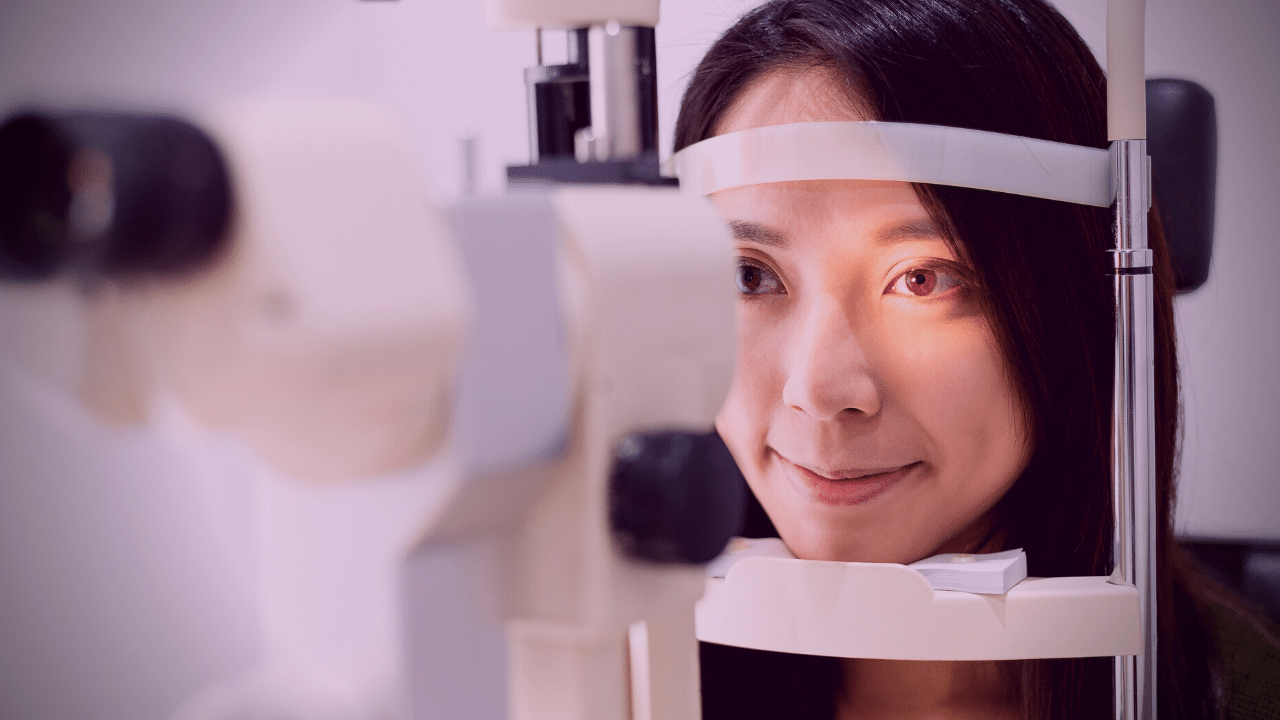November 9, 2021
Keep An Eye on Your Vision

New research links impaired vision to depressive symptoms in women during midlife.
By Selene Yeager
A few weeks ago, a woman in the Feisty Menopause community asked whether menopause affects eyesight. The answer is yes it can, though it can be tricky to determine which changes are due to hormonal fluctuations and which are age-related (and which are both). And in the end, it doesn’t matter if you can’t see well.
If you notice changes in your vision or eye health, an appointment with an eye doctor is in order. If you need more incentive, new research published in Menopause reports that women with impaired vision at midlife are at increased risk for depressive symptoms down the line.
The researchers analyzed data from 226 women who were included in the Michigan site of the Study of Women’s Health Across the Nation (SWAN), which assessed visual acuity at six near-annual follow-up visits. At each visit, the participants also reported on their depressive symptoms using the Center for Epidemiological Studies Depression Scale.
The researchers found a significant link between impaired vision and depression. That’s important because women are already at a higher risk for mood disorders like depression during the menopause transition.
Menopause can affect eye health much in the way that aging does: your corneas begin to stiffen without estrogen to give them more elasticity. Your eyes can also become drier (another issue that increases with age), leading to itchiness, discomfort, and less acute vision.
The researchers suggest that early identification and timely correction of vision problems is an important step in preserving mental and physical health in midlife women. Makes sense. For most of us, our eyes are one of our primary senses. Unresolved vision impairment is frustrating. Impaired vision also can be a symptom of underlying health issues, which may also be negatively impacting your mental and physical health, so shouldn’t be ignored.
“This study identified a significant longitudinal link between visual impairment and subsequent development of depressive symptoms in midlife women. Given that the combination of visual impairment and depression has a particularly devastating effect on physical and mental health, correcting vision problems early is important for future quality of life,” Dr. Stephanie Faubion, NAMS medical director said in a press release.
For us active women, good vision also allows us to continue to play our sports and perform better in our activities. And that definitely leads to a better state of both body and mind.


 Outspoken Women in Triathlon Summit Returns Bigger than Ever
Outspoken Women in Triathlon Summit Returns Bigger than Ever  Driving the Lamborghini: Productivity and the Power of Paper
Driving the Lamborghini: Productivity and the Power of Paper  5 take aways from the Compete Sports Diversity Summit
5 take aways from the Compete Sports Diversity Summit  Simple Tips to Hone Your Bike Handling Skills
Simple Tips to Hone Your Bike Handling Skills 


